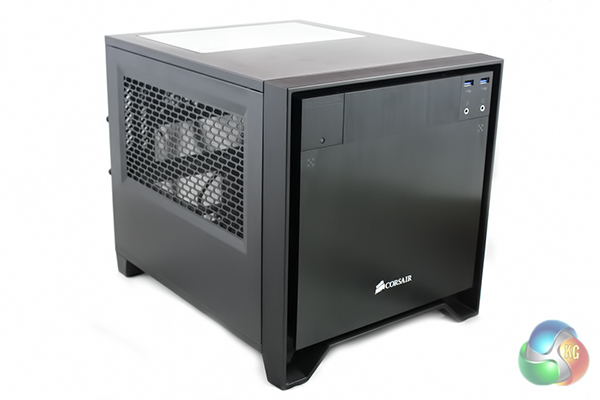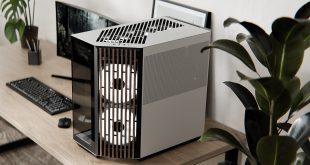
Today we are going to take a look at the latest case in Corsair’s Obsidian line up, the 250D. This appears to have been designed specifically for those who are looking to build a compact gaming system – therefore putting it in direct competition with the Bitfenix Prodigy.
The Bitfenix Prodigy has become a very popular case amongst the enthusiast audience looking to build a compact gaming PC that is easily transportable to LAN parties and events. Other case manufacturers have recognised this and have designed competing models in response.
Corsair have been producing quality chassis for a few years now and have developed a substantial range in this time. We have been very impressed with their cases we have tested in recent months, so we are interested to see what their first mini-ITX case has to offer.
Features
- Aluminum front fascia and thick steel construction.
- Overall dimensions 290mm (H) x 277mm (W) x 351mm (D)
- Top window for component visibility.
- Thumbscrew backplate removal for PSU and hard drive access.
- Easily removed dust filters on all intakes.
- Simultaneously fit two 3.5″/2.5″ drives, two 2.5″ drives, one 5.25″ drive, a full sized PSU, a 290mm long GPU, and a 240mm radiator.
- Front panel USB 3.0, headphone and mic ports, and power and reset buttons.
- Innovative three panel removal for sides and top panel, with thumbscrews.
- Front fan 200mm, 140mm, or 120mm compatible (AF140L 140mm included)
- Side fans dual 120mm compatible (AF120L 120mm included)
- Rear fans dual 80mm compatible
- Tons of cable routing tie downs for easy cable maintenance.
- Tool free installation of all drives.
 KitGuru KitGuru.net – Tech News | Hardware News | Hardware Reviews | IOS | Mobile | Gaming | Graphics Cards
KitGuru KitGuru.net – Tech News | Hardware News | Hardware Reviews | IOS | Mobile | Gaming | Graphics Cards




I think putting the ports on the front of the case ruins the appearance, they should be on the side or top. Just my 2 cents.
Other than that good looking chassis.